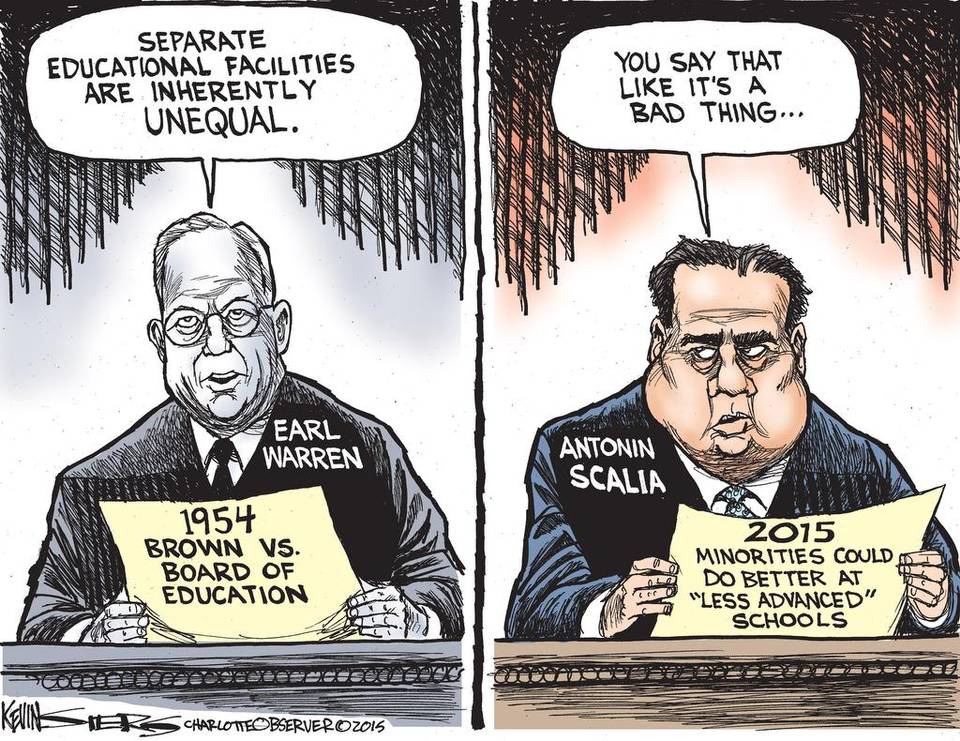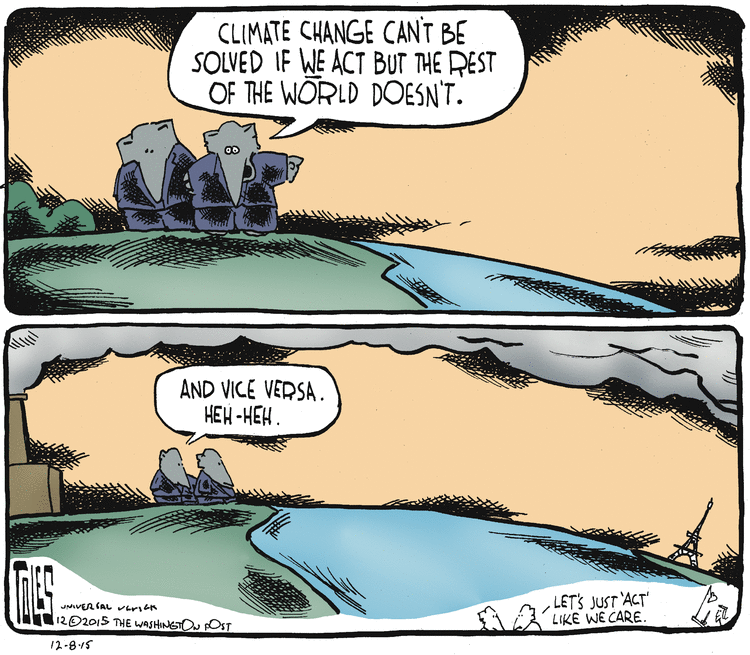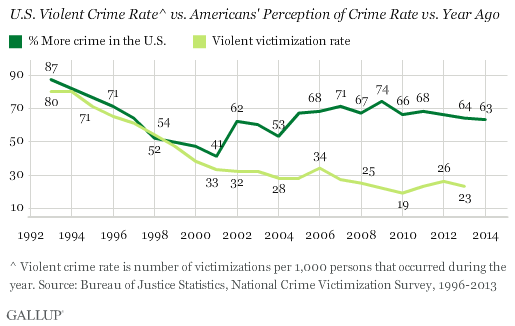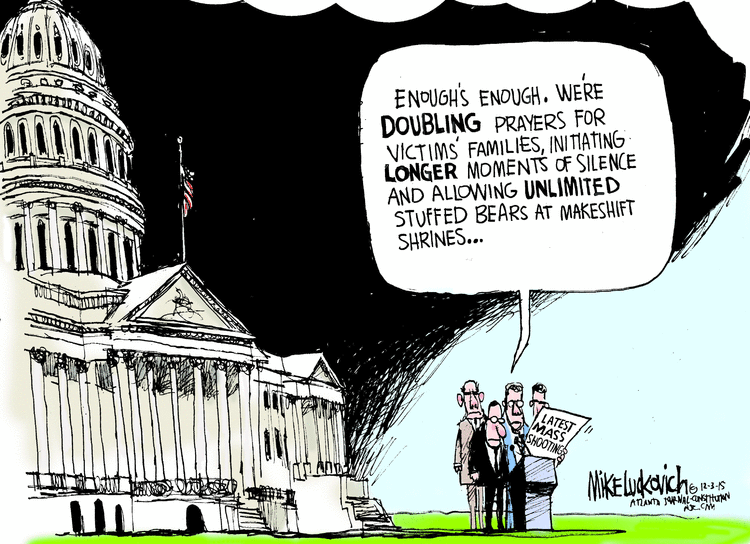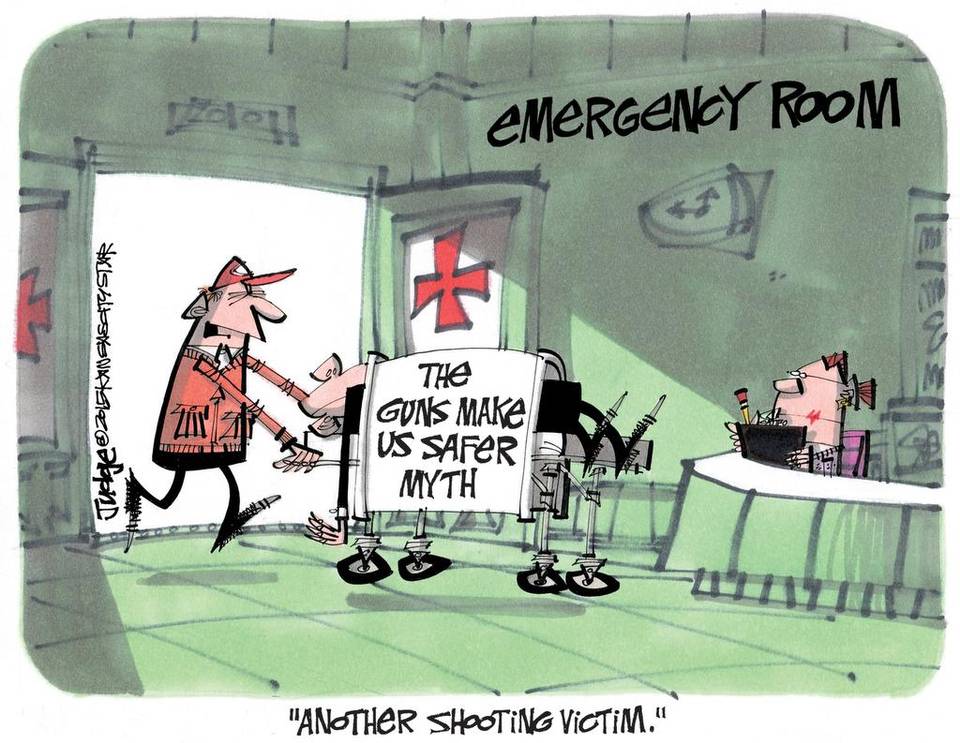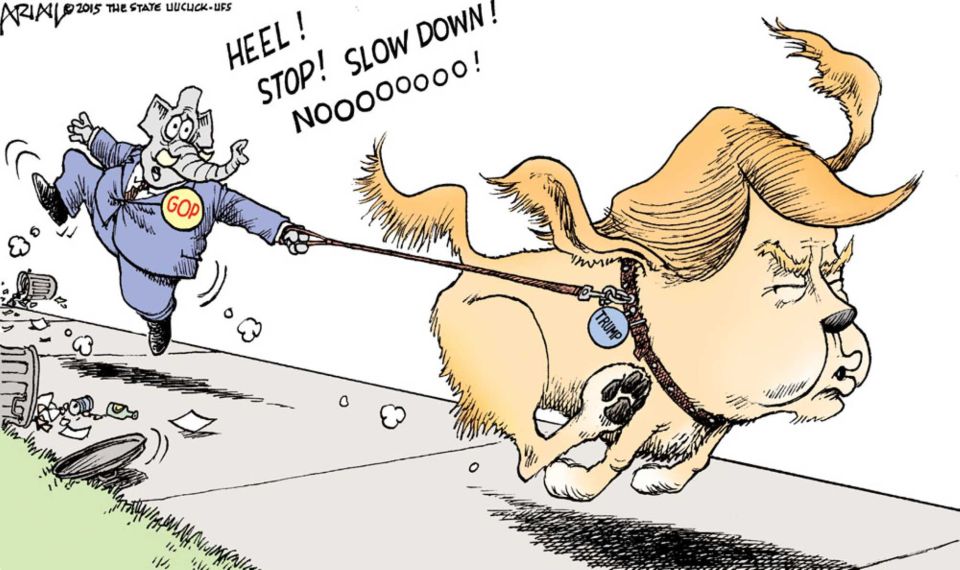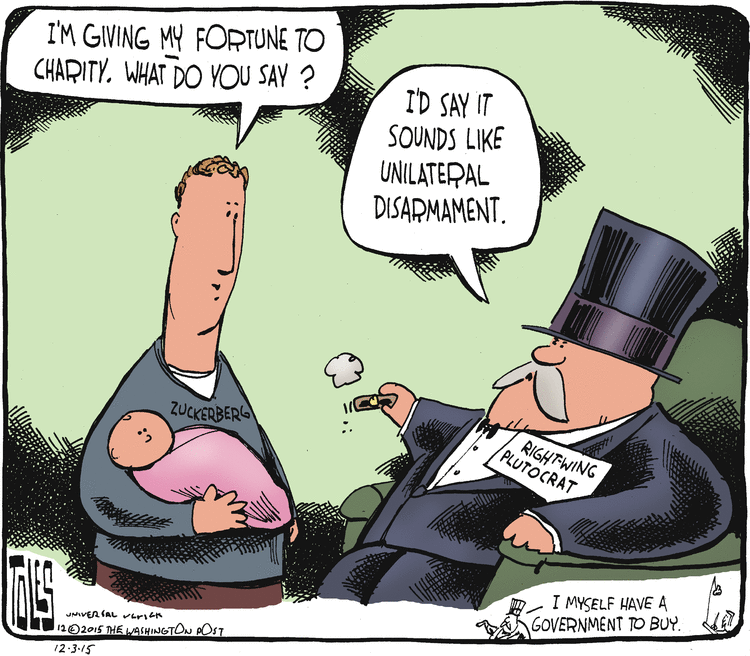“It ain’t what you don’t know that gets you into trouble. It’s what you know for sure that just ain’t so.” (Mark Twain)
Yesterday, we linked to an article describing the difference between being misinformed and being uninformed. Uninformed people have no information about a subject, while those who are misinformed have information that conflicts with the best evidence and expert opinion.
How are so many people getting misinformed, and staying that way? Why does it work?
You probably have never heard of Robert Proctor, from Stanford, who wrote a book about ignorance, in which he tries to answer the question: What keeps ignorance alive, or allows it to be used as a political instrument? He calls this “Agnotology” (the study of ignorance). Proctor’s point is that ignorance has a political geography, and there are things people will work hard to keep you from knowing.
Apparently, his work started with the tobacco industry, who at some point used the slogan: “Doubt is our product“.
Proctor explains that ignorance can be propagated under the guise of balanced debate. For example, the common media approach that there are two opposing views does not always result in a rational conclusion to readers or viewers. This was how tobacco firms used science to make their products look harmless. It is still used today by climate change deniers to argue against the scientific evidence.
Procter, from the BBC:
This ‘balance routine’ has allowed the cigarette men, or climate deniers today, to claim that there are two sides to every story, that ‘experts disagree’ – creating a false picture of the truth, hence ignorance…We live in a world of radical ignorance, and the marvel is that any kind of truth cuts through the noise…Even though knowledge is ‘accessible’, it does not mean it is accessed.
Sound familiar?
In a December focus group with Trump supporters, David Frum, long-time Republican pollster, found that when negative information about Trump was presented, it strengthened the group’s support for him. Participants in the group held on more confidently to their misinformation as the session progressed.
We know that this is a symptom of the culture of American anti-intellectualism. Conspiracy theories have the same clout as legitimate science; the opinions of non-experts are just as credible as those of the experts; and ideology takes precedence over the cold hard facts. In this world, Trump is merely a symptom of that ethos and an industry dedicated to propagating doubt.
We all remember Stephen Colbert saying: “reality has a well-known liberal bias.”
And consider a 2012 study that found when people are prompted to use their critical faculties, they become less likely to affirm religious statements. They found that there’s a causal link between “analytical thinking” and religious disbelief.
Perhaps the worst (best?) example was the Republican Party of Texas rejecting critical thinking in its 2012 platform:
We oppose the teaching of Higher Order Thinking Skills (HOTS) (values clarification), critical thinking skills and similar programs [that] have the purpose of challenging the student’s fixed beliefs.
Hmmm. Teaching HOTS can give you the HOTS? Doubtful.
Perhaps it’s a better thing to not know the facts, instead of knowing a few pretend facts. At least, the uninformed person is persuadable by evidence.
The right-wing noise machine has fed hatred, bigotry, fear and loathing to its base supporters for decades, and Trump is the logical outcome. Most people aren’t all that logical when it comes to politics or political issues, since most of us tend to be ruled more by emotions. But the right-wing propaganda juggernaut has brainwashed some of its followers to the point that they are completely impervious to facts.
The Republicans are not going to laugh the Donald off their stage. They are not going to dissuade his core supporters, the only question is will his supporters vote in the Republican primaries.
If they do turn out, it will be The Donald vs. The Hill in 2016.

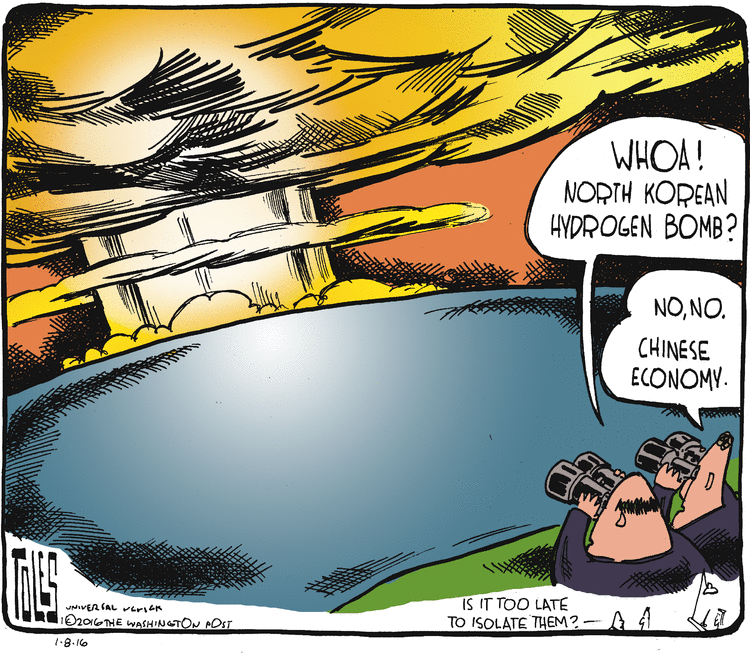
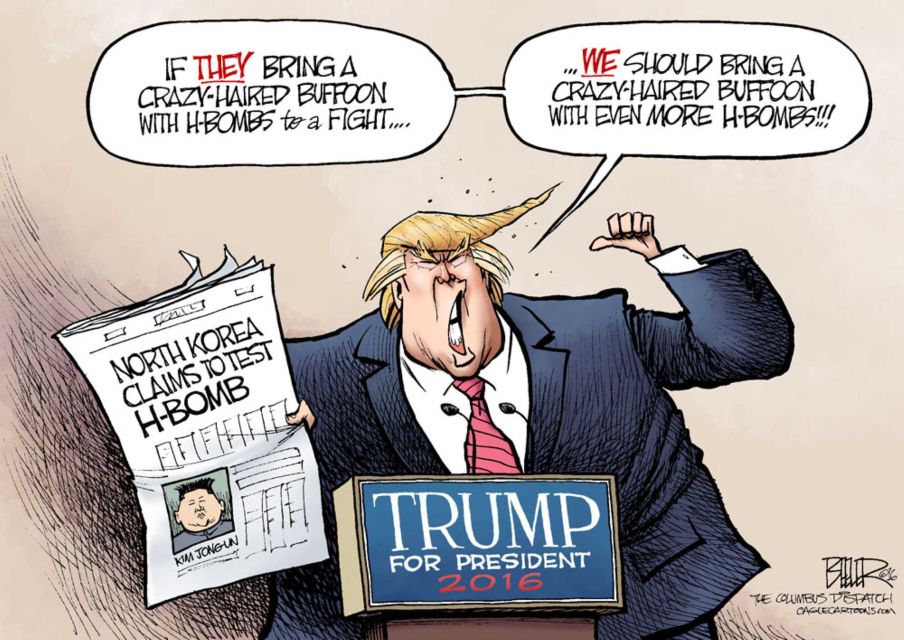
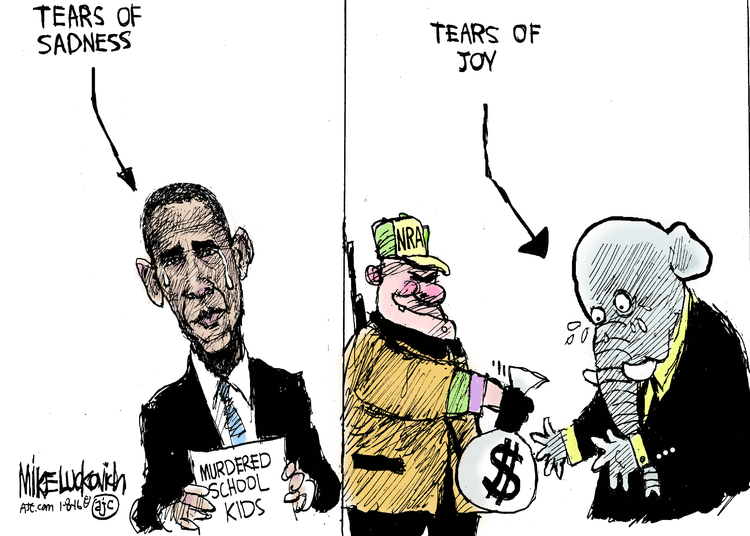 The logical conclusion of 2nd Amendment Absolutism:
The logical conclusion of 2nd Amendment Absolutism:
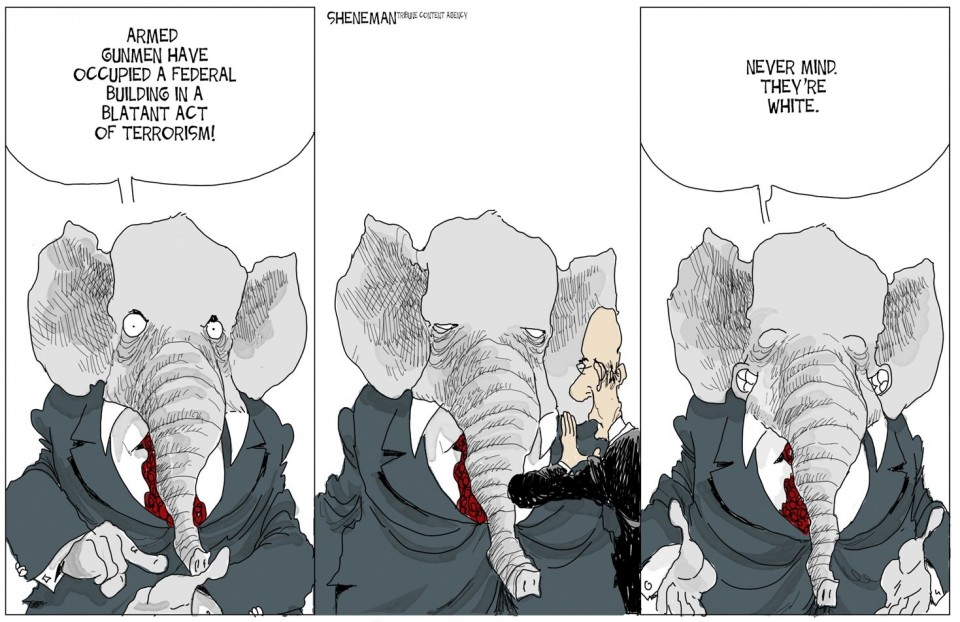 Saudi Arabia vs. Iran: Make sure we have no skin in their game:
Saudi Arabia vs. Iran: Make sure we have no skin in their game:

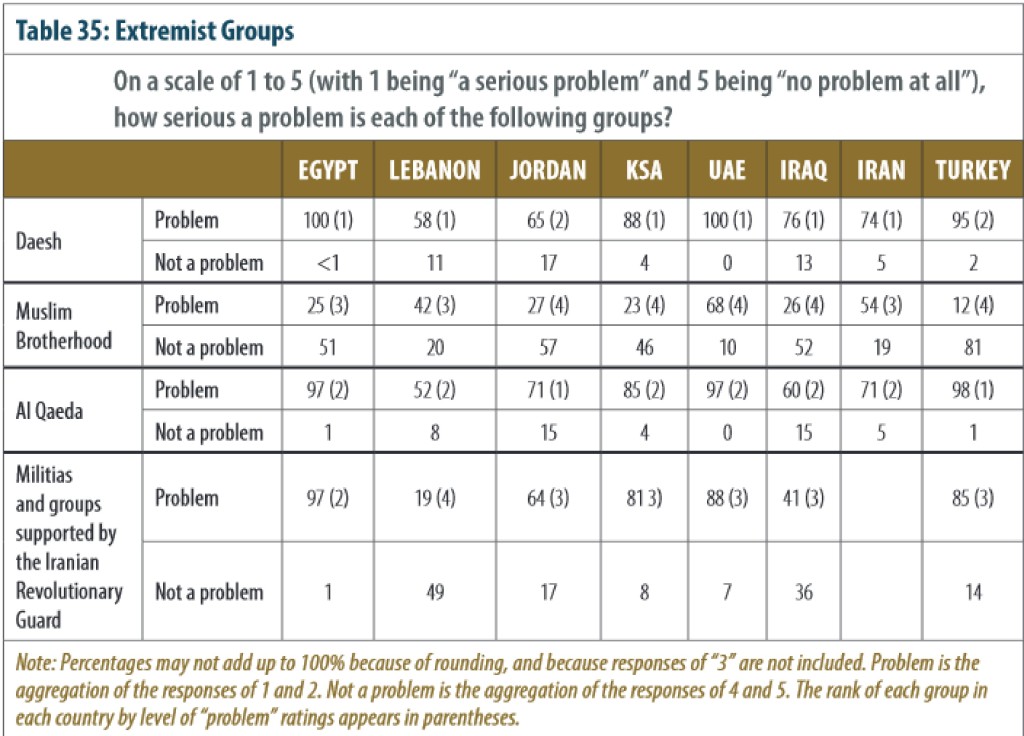 How best to defeat extremism? Respondents in every country said:
How best to defeat extremism? Respondents in every country said: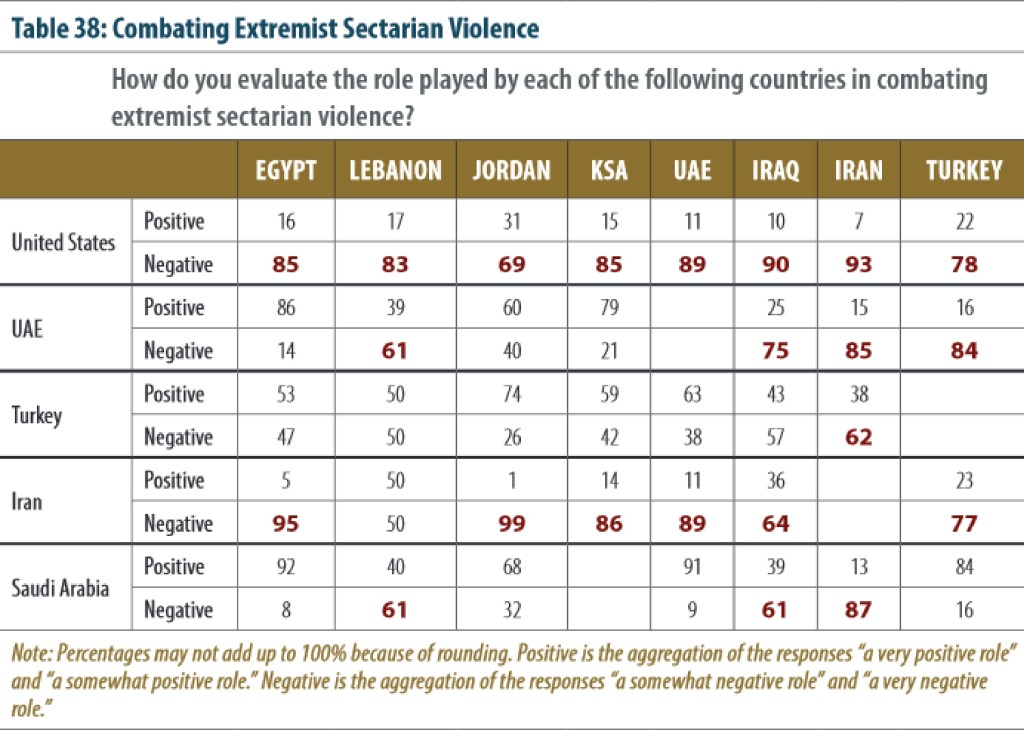 • Surprisingly to people in the US,
• Surprisingly to people in the US, 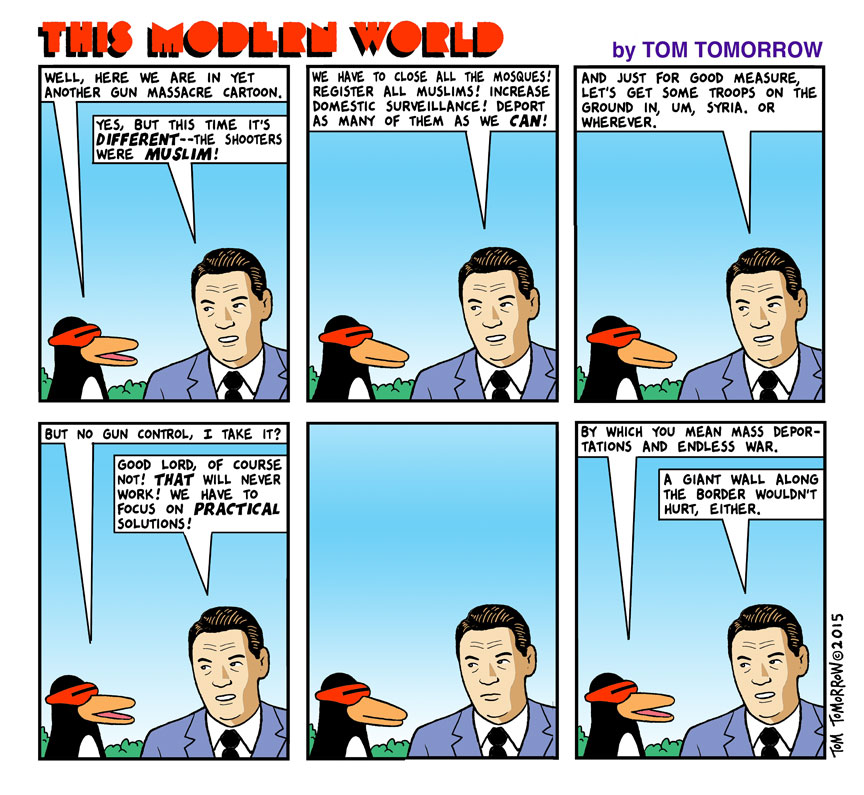
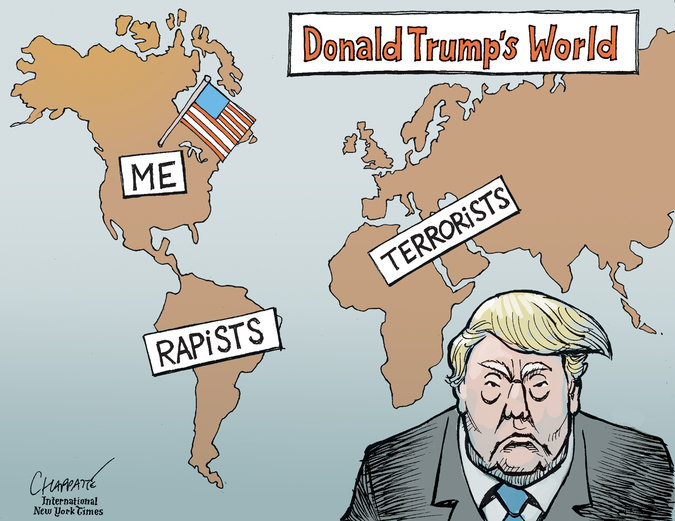
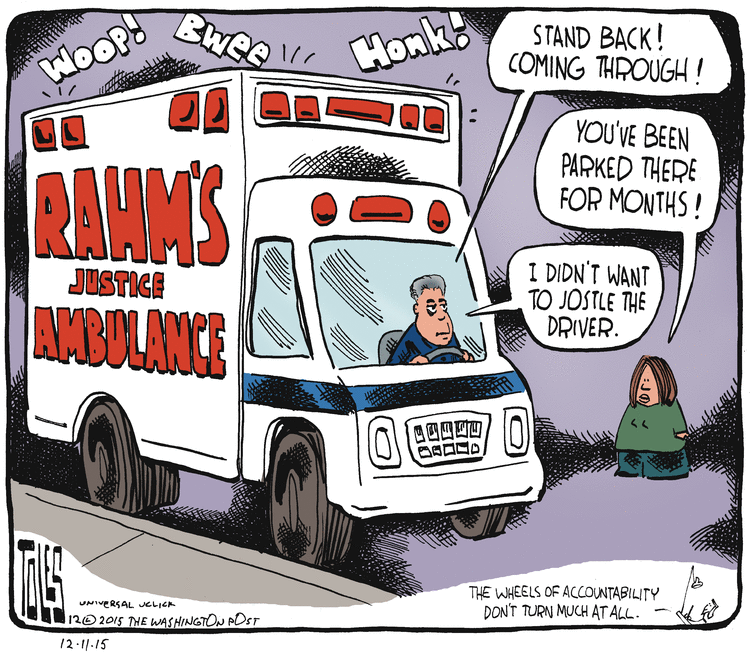 As mayor, he sat on that video for over a year. He had to know, because the $5 million payment to the victim’s family didn’t come from petty cash at the Chicago PD. He was the chief architect of the cover-up. And he needs to go.
As mayor, he sat on that video for over a year. He had to know, because the $5 million payment to the victim’s family didn’t come from petty cash at the Chicago PD. He was the chief architect of the cover-up. And he needs to go.